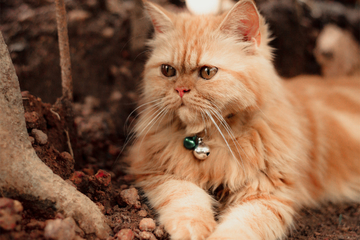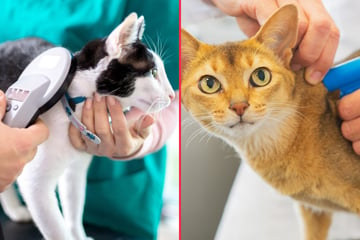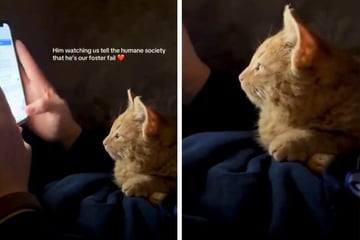Cat whiskers: What are cat whiskers for, and everything you need to know
There's nothing sweeter than a cat's whiskers, sticking out in all directions and looking just sublime. What's the point of these spiky hairs, though? What are cat whiskers for, and what should you know about them?
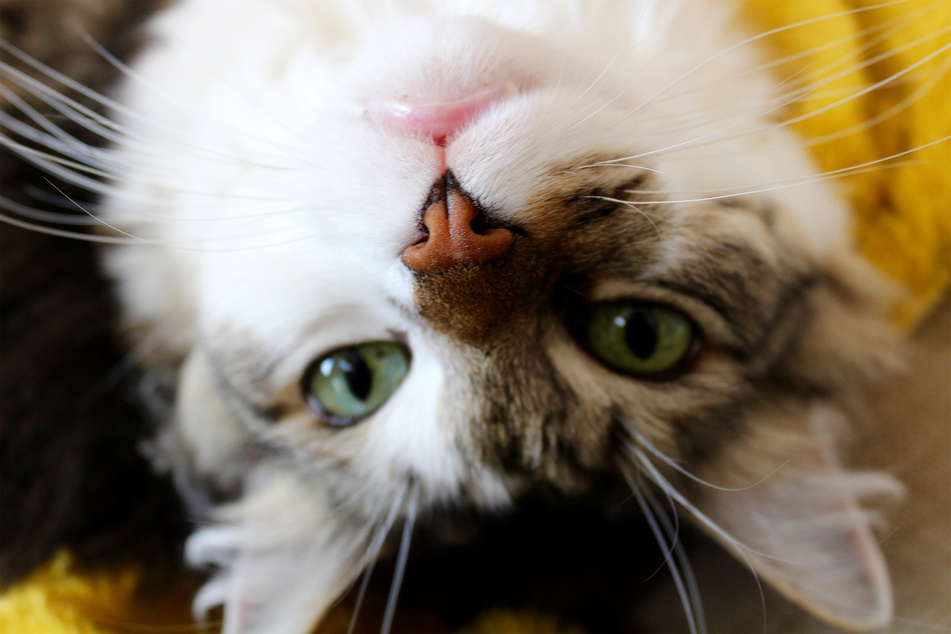
Is there anything in the world more bound to bring the "aww" than a cat's whiskers? Spiking out at right angles from a cat's face, these cute little tufts of hair never draw criticism but often stir confusion. What's the point of them? Why do cats need these whiskers, and is there anything you need to know about them?
In this cat guide, TAG24 is going to take a look at what cat whiskers are for. What do their whiskers do, why are they important, and when should you be concerned? Here's everything you need to know about cat whiskers!
What do cat whiskers do?
Whiskers are specialized hairs that act as sensors to help a cat guide its way through environments. Think of them almost like the antennae of an insect, detecting movement where their eyes might not be able to see by feeling changes in the flow of air around them. Additionally, whiskers help cats balance and figure out whether a space is big enough for their body to fit through.
Your beloved feline friend has a small sensor at the end of each of its whiskers that is capable of sending messages to its brain. The information that is transmitted is mainly regarding the positioning of your cat's body, as well as data from the surrounding environment.
It's extremely complicated, of course. Cat whiskers perform a number of incredibly important tasks, making them an absolutely essential part of their bodies.
Why cat whiskers' purposes are important
There are many functions performed by cat whiskers, from spatial awareness to the conveying of emotions. It's worth breaking down these important tasks.
Here's an assortment of cat whisker purposes:
- Sensors for spatial awareness: Your cat will use its whiskers to help navigate its way through the environment. That means checking the size of spaces it wants to crawl through, knowing where it is in relation to other objects, etc.
- Extra eyes: Whiskers are capable of detecting changes in the flow of air around a cat. This means that your kitty will be able to know that something is coming even if it cannot hear or see said thing. They act almost like a second set of eyes and are extremely sensitive and accurate.
- Balance: Your cat uses its whisker sensors to maintain its balance and orient its body. This is why cats will typically always land on their feet. Think of their whiskers like a multi-purpose level tool - just an absolute must!
- Emotions: In much the same way cats will flick their tails and ears when they're annoyed, they will also flick their whiskers. It's a form of cat body language that's worth learning and investing time in understanding.
- Protections: Cats also use their whiskers as a sort-of net to catch small particles of dust, sand, dirt, and other things that would have otherwise gotten into their eyes.
It can be determined by simply skimming the purposes listed above that cat whiskers are vitally important for their safety, navigation, and life.
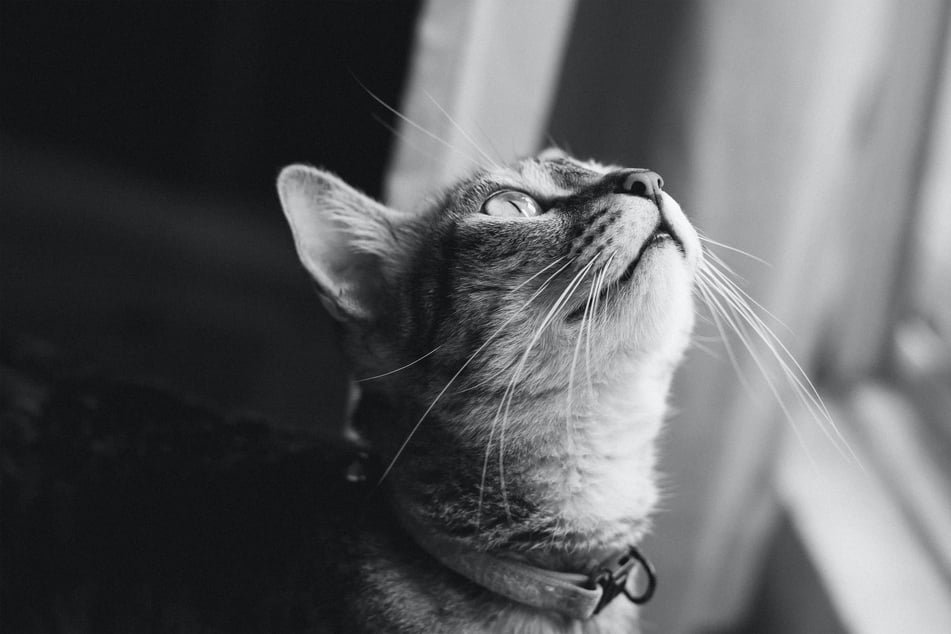
How many whiskers does a cat have?
Cats usually have twenty-four whiskers on their face, each individual one connected to a specific part of their brain. These whiskers are generally arranged with twelve on each of the cat's cheeks, arranged in rows with three whiskers in each row. Some cats will have more or less whiskers, but it will always be an even number (assuming that your cat is healthy).
Do cat whiskers grow back?
If your cat has lost a few whiskers or had them cut off somehow, as long as the follicle is intact, they will grow back. So try not to worry if you have noticed that your beloved feline friend has lost of some of its adorable facial hair, it'll almost certainly be fine. In the case that your cat starts shedding more than just one or two at a time, and the whisker loss gets more intense, you need to take your cat to the veterinarian.
Best be careful: Even if our bits and pieces of advice have helped you out, if you are worried in any way about the health of your feline friend, take it to the vet. We are not trained medical professionals here at TAG24, and you should keep your cat as safe as possible.
My cat is losing whiskers, why are they falling out?
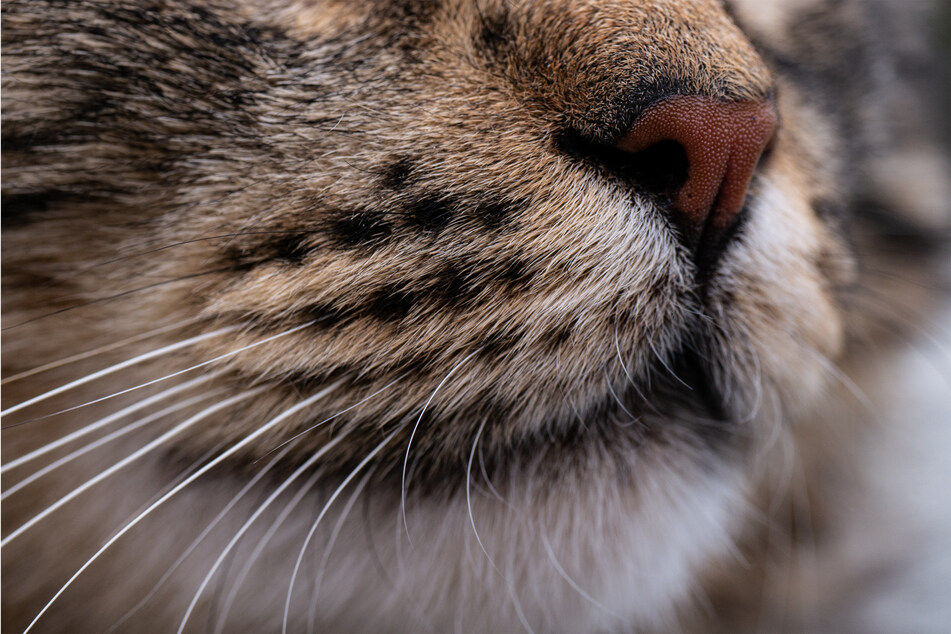
It's normal for a cat to shed one or two whiskers every now and again, just like any other hair. In some cases, as well, your veterinarian will need to trim your cat's whiskers (usually for some sort of medical reason). Don't fret, they will grow back, but when should you get worried?
If your cat has started shedding multiple whiskers at a time and has significantly fewer whiskers on its face than normal, something could be up. In the case that this symptom is coupled with other hair loss issues or things like scabs and flaky skin, then a vet should be your first port of call because something could be medically wrong with your feline friend.
A couple of reasons why your cat might lose whiskers include:
- Stressful situations, including major changes to its life and territory or strange people around the house.
- Skin issues such as infections or fungal attacks can cause hair loss and whisker loss.
- Issues such as ringworm and other parasites like fleas or lice.
- If your dog is allergic to things in its immediate environment, it can develop an assortment of symptoms.
- Fights between cats can result in them pulling out the other cat's whiskers or having their own torn. Make sure to get your cat checked out after a fight to avoid any infections or issues.
Cats don't usually shed more than one or two whiskers at a time. If they start shedding more than that, something might be up.
Can you tell how old a cat is by their whiskers?
The signs are very minor, but older cats will lose whiskers more often and will have noticeable graying in their whiskers. Other than that, though, the best sign is that they are generally longer and more scruffy. A cat's whiskers will grow until they reach the width of the cat, but this can be reached within a few years so it's not a sign that your cat's getting old.
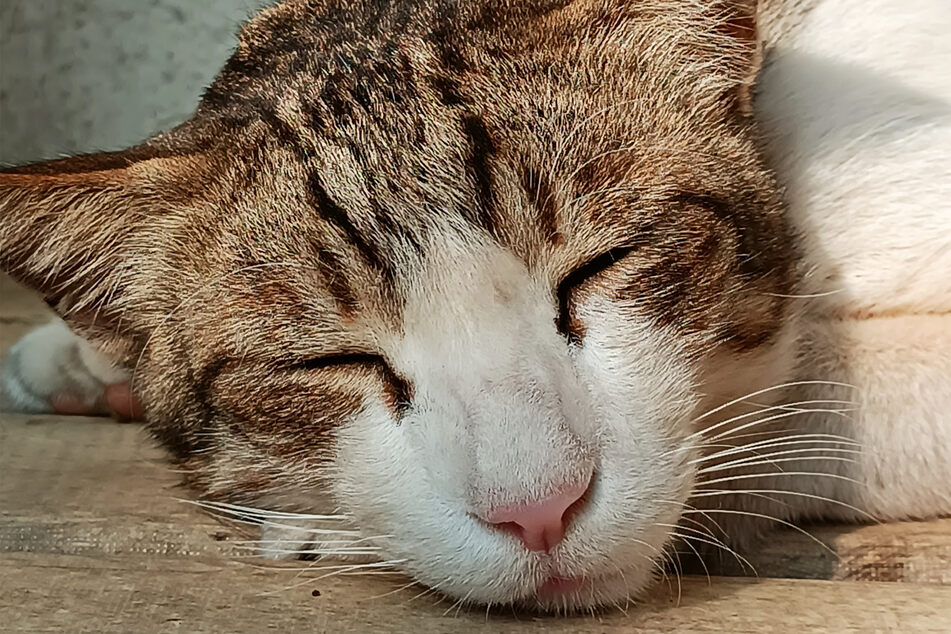
Are there any advantages for cats with long whiskers?
Considering that whiskers aid in the detection of objects and nearby movement, longer is certainly better. These spiky hairs help in hunting and in general spatial awareness. If your cat's whiskers are longer, then it will be more capable of navigating the surrounding space, which is a huge advantage.
Of course, all cats come in different shapes and sizes, and the same goes for their whiskers. Seeing as their whiskers are linked to their nervous and muscular systems, it's worth noting that shortened whiskers or whiskers that have been clipped can pose a genuine danger to your cat's safety.
Ultimately, whiskers are more than just a charming decoration upon your cat's face. They are vital for navigation and spatial awareness, so don't go cutting them.
Cover photo: Unsplash/Morgan Lane

